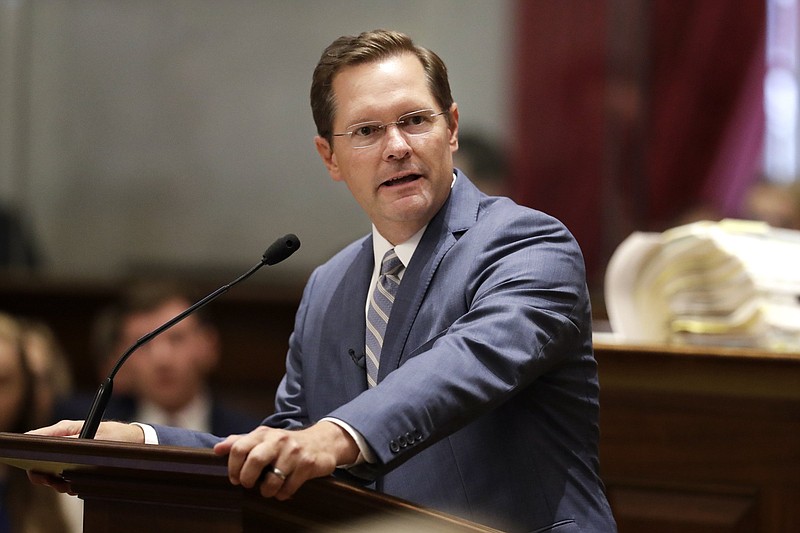NASHVILLE - Tennessee lawmakers return to the state Capitol Monday for what they hope is the final week of their 2021 session with dozens of remaining issues before them, ranging from new restrictions on police chokeholds and no-knock warrants to a Republican-led effort to create a new statewide "super" Chancery Court to hear legal challenges to state laws.
Other pending issues include final action on proposed monthly increases to low-income families in the state's welfare-to-work program, Families First. The program's payments are now among the lowest in the nation. The measure also boosts penalties for welfare fraud, waste and abuse.
House Speaker Cameron Sexton, R-Crossville, said he thinks lawmakers can wrap up their business this week.
"After last year, this session has seemed to glide by smoothly," he said. "We have covered a wide-ranging series of policies: literacy, Second Amendment, criminal justice reform, truth-in-sentencing, transparency in drug costs, election integrity and a debt-free, balanced budget."
Sexton said he's "proud of our General Assembly in the steps we have taken to continue moving our state in a conservative direction."
The legislation dealing with police chokeholds states officers should not use the potentially lethal force unless in fear of their own lives. It also prohibits judges from issuing no-knock warrants.
Representatives on Monday are expected to debate a Senate-passed bill blocking state and local governments from mandating COVID-19 vaccination and allowing religious exemptions. While it hasn't been an issue in Tennessee - Republican Gov. Bill Lee is opposed to mandating the vaccinations - Sen. Janice Bowling, R-Tullahoma, believes the legislation is necessary.
Other controversial measures are pending, as well.
Upset by rulings from Davidson County chancellors, Senate Judiciary Committee Chair Mike Bell, R-Riceville, and Rep. Andrew Farmer, R-Sevierville, are racing to create an elected statewide "super" Chancery Court. The three-judge panel would hear all constitutional challenges to state laws. Senate Bill 868 and its House companion bill both are scheduled to be heard Monday in House and Senate finance committees.
Bell makes no bones the legislation is driven by GOP gripes over Nashville judges who under state statute hear many of the challenges. The chancellors, according to Bell, are elected by some of the state's most liberal voters, resulting in a ruling last year that made it easier for Tennesseans to vote absentee by mail during the pandemic.
"I could point to a number of cases over the last several cases, the most recent one being the voter case [absentee ballots] that came before Davidson County Chancery Court back last summer," Bell said. "I could point to the ESA [Education Savings Account/school voucher] case, I could point to cases involving BEP [state school funding formula] distributions, any of these cases where state laws and constitutionality of state laws have been challenged.
"So here's the question," Bell said. "Why should judges who are elected by the most liberal constituency in the state, again, I'm taking this head-on, why should they be the ones deciding cases that affect the state in general?"
Bell said his hope is that creating the new three-chancellor panel, whose members would be appointed by the governor then run for full terms in 2022, will result in the election of Republican judges he believes are more aligned with most Tennesseans' views.
Chattanooga attorney Lee Davis is helping lead an effort to oppose Senate Bill 868 which, along with the House version, is scheduled to come up in Senate and House finance committees on Monday.
"You ask yourself, 'Why is the governor and Sen. Bell, why are they seeking to politicize the judiciary?' Because that's what is happening here," Davis said. "The problem with this is, it erodes public confidence in impartial judges."
Lawmakers last week passed the state's $42.6 billion budget, the only thing they're constitutionally required to do. It traditionally signals the end of their annual session, which began Jan. 12.
Contact Andy Sher at asher@timesfreepress.com or 615-255-055o. Follow on Twitter @AndySher1.
